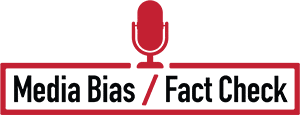
When viewing a media story, consider some of the following questions.
Why has this media outlet chosen to run a particular story?
Have parts of the story been given more coverage whilst other parts have been ignored?
Are other outlets covering this story? Are these outlets covering the story in the same way?
It is important to consider what might be influencing media outlets to choose what they report and the way they report it.
Might some (or all) of the following shape what we see on our screens?
Therefore, considering the influences outlined above, we might want to consider the question: does the media set the agenda or does it have its agenda set for it?
Are we biased in the way we think about people or events?
Can we recognise these biases in ourselves or are they hidden?
The Learning for Justice site is a fantastic resource for understanding biases. It also links out to a page developed by Project Implicit which allows you to test for your hidden biases.
Making headlines...
Why have they chosen to lead with this story and not another?
Is the story sensationalist?
Do different news outlets lead with different stories?
Images can have a huge influence on how we might think about people and events.
Media Bias/Fact Check - Search and Learn the Bias of News Media
https://mediabiasfactcheck.com
Media Bias Fact Check aims to identify biased or deceptive news and media practices.


Look at the way language is used by media outlets.
For example: are people that take to the streets, described as rioters, protestors or demonstrators?
When does a crowd become a mob?
On January 6th, 2021, media outlets reported on a group of people entering the Capitol building in Washington. One news outlet described the people as a mob. Other news outlets claimed that this mob laid siege to the Capitol. Another news outlet used the headline Protestors Enter Capitol Building. Why is there a difference in the use of language when describing the same event?
How does the use of language influence our perceptions of people and events?

In the media, men who are medical doctors or hold a PhD are often introduced as Dr., whilst women with the same qualifications are introduced by their first name. Why do you think that is?